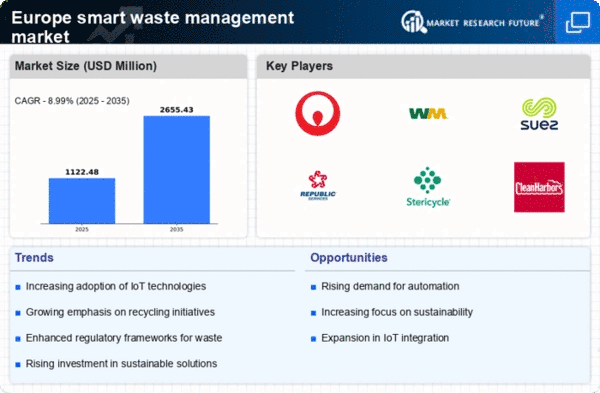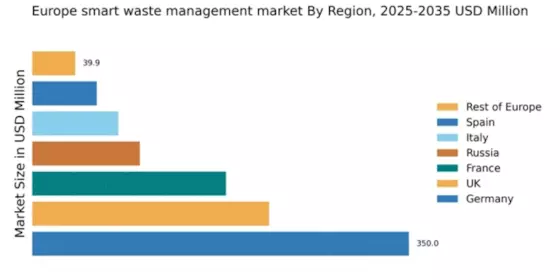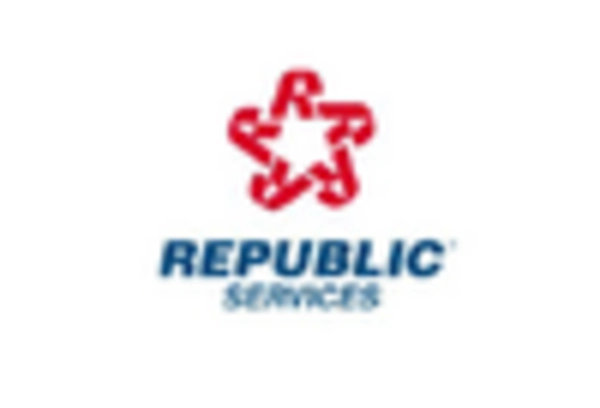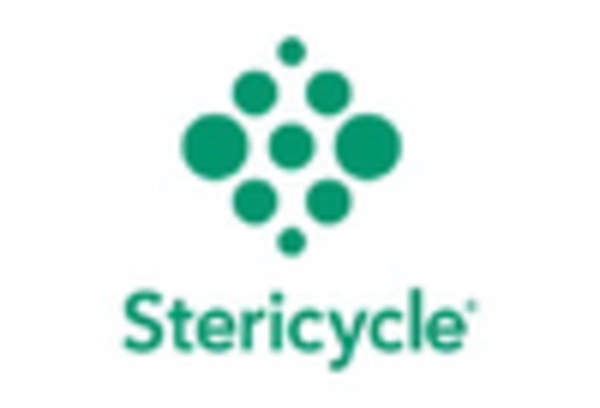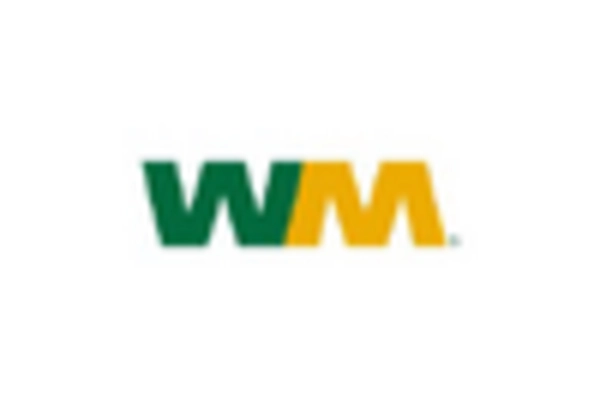Urbanization and Population Growth
Urbanization in Europe is a critical driver for the smart waste-management market. As urban populations continue to swell, the demand for efficient waste management solutions intensifies. By 2030, it is estimated that over 80% of the European population will reside in urban areas, leading to increased waste generation. This demographic shift necessitates the adoption of smart waste-management systems to handle the rising volumes of waste effectively. Cities are investing in smart technologies to manage waste more sustainably, with some regions reporting a 25% increase in waste collection efficiency through smart solutions. The growing urban population is thus a significant factor propelling the smart waste-management market forward.
Economic Incentives for Smart Solutions
Economic incentives play a pivotal role in the growth of the smart waste-management market in Europe. Governments are increasingly offering financial support and subsidies to municipalities that invest in smart waste technologies. For instance, the European Commission has allocated €1 billion for projects aimed at enhancing waste management systems across member states. These incentives encourage local authorities to adopt innovative solutions, such as automated waste collection and real-time monitoring systems. As a result, municipalities can achieve cost savings and improve service delivery, which is likely to stimulate further investment in the smart waste-management market.
Technological Advancements in Waste Management
The market in Europe is experiencing a surge due to rapid technological advancements. Innovations such as AI-driven analytics and IoT-enabled sensors are enhancing operational efficiency. For instance, cities like Amsterdam have implemented smart bins that monitor waste levels, optimizing collection routes and reducing operational costs by up to 30%. This technological evolution not only streamlines waste collection but also improves recycling rates, as data analytics can identify contamination in recyclables. The integration of these technologies is expected to drive market growth, with projections indicating a compound annual growth rate (CAGR) of 15% over the next five years. As municipalities increasingly adopt these solutions, the smart waste-management market is likely to expand significantly.
Public-Private Partnerships in Waste Management
Public-private partnerships (PPPs) are emerging as a vital driver for the smart waste-management market in Europe. Collaborations between government entities and private companies facilitate the sharing of resources, expertise, and technology. These partnerships enable the implementation of large-scale smart waste projects, such as integrated waste management systems that utilize data analytics for optimization. For example, cities like Barcelona have successfully partnered with tech firms to deploy smart bins and waste tracking systems, leading to enhanced operational efficiency. The trend towards PPPs is expected to continue, potentially accelerating the growth of the smart waste-management market as stakeholders seek innovative solutions to waste challenges.
Environmental Regulations and Sustainability Goals
The smart waste-management market in Europe is significantly influenced by stringent environmental regulations and sustainability goals set by governments. The European Union has established ambitious targets for waste reduction and recycling, aiming for a 65% recycling rate by 2035. These regulations compel municipalities to adopt smart waste-management solutions that enhance compliance and promote sustainability. For example, countries like Germany have implemented advanced waste sorting technologies that align with these regulations, resulting in a 50% reduction in landfill waste. The pressure to meet these environmental standards is likely to drive investment in smart waste-management technologies, fostering market growth.


